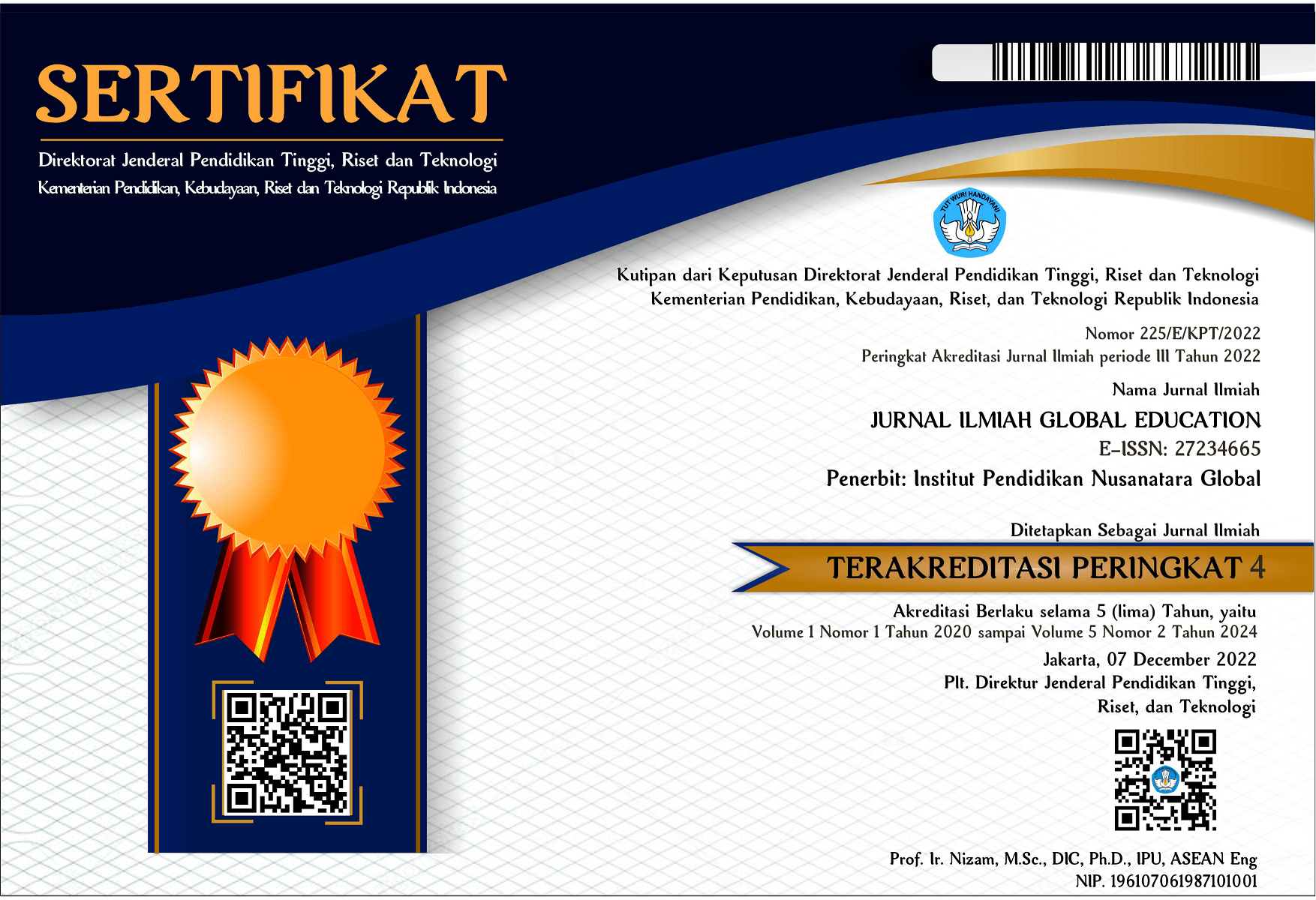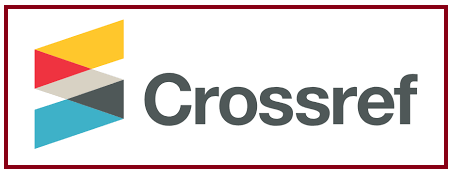Analysis of Digital Recruitment Strategy in Facing Talent War Competition
DOI:
https://doi.org/10.55681/jige.v5i3.3364Keywords:
Digital recruitment, strategy, AHP, talent warAbstract
The goal of the research is to determine the recruitment system, identify the relevant variables, players, objectives, and alternatives in developing recruitment strategies, and develop suitable alternative recruiting methods. Data gathering techniques include conducting in-depth direct interviews, organizing focus group discussions (FGD), and administering surveys. Data processing techniques include both qualitative and quantitative data analysis methods. The data processing technique used in this work is the Analytical Hierarchy Process (AHP) approach, using the Expert Choice 2000 software and Microsoft Excel 2010. The findings of the research suggest that the Applicant Tracking System (ATS) is the most efficient means of recruiting for organizations, with online recruitment platforms and virtual job fairs following suit. These methods contribute to enhancing efficiency, broadening the scope of recruitment, and establishing employer branding. Ultimately, the integration of these three approaches enables organizations to attract high-caliber applicants who align with the particular requirements of the role and the fundamental principles of the firm while also being responsive to technology advancements and the labor market.
Downloads
References
Adawiah, A., Asmini, & Umar, A. (2023). Digital Transformation Impact on Human Resource Management Practices in Indonesia: Exploring Technology-Based Approaches. International Journal on Recent and Innovation Trends in Computing and Communication, 11(9), 1287–1295. https://doi.org/10.17762/ijritcc.v11i9.9059
Atmawijaya, M. K. R. E., Siringoringo, D. E., Ricoras, F., Nainggolan, R. D., & Putra, S. B. G. (2023). Criminal Liability for The Provision of Illegal WIFI Telecommunications Services. IJCLS (Indonesian Journal of Criminal Law Studies), 8(1), 121–150. https://doi.org/10.15294/ijcls.v8i1.43273
Ayuningtias, H. G. (2023). Digital Skills and Competencies for a Changing Labor Market in Indonesia. In Developing Skills and Competencies for Digital and Green Transitions (pp. 129-150). IGI Global. https://doi.org/10.4018/978-1-6684-9089-1.ch006
Bhargava, S., & Johri, S. (2024). TALENT ACQUISITION AND RETENTION: A CRITICAL REVIEW OF THE LATEST INNOVATIONS & CHALLENGES IN TALENT MANAGEMENT. Futuristic Trends in Management Volume 3 Book 28, 76–84. https://doi.org/10.58532/v3bhma28p5ch2
Chalco-Chávez, C. L., Fernandez-Hurtado, G. A., & Cordova-Buiza, F. (2023). Factors Influencing the Human Talent Recruitment Process in Private Companies: A Systematic Review. European Conference on Management Leadership and Governance, 19(1), 72–79. https://doi.org/10.34190/ecmlg.19.1.1796
Esthi, R. B. (2020). Strategi Sumber Daya Manusia di Masa Pandemi dan New Normal Melalui Remote Working, Employee Productivity, Dan Upskilling For Digital. JPM: Jurnal Pengabdian Masyarakat, 1(1), 22-24.
Ganguly, S. (2024). Practices and Challenges of Recruitment in IT Industry. INTERANTIONAL JOURNAL OF SCIENTIFIC RESEARCH IN ENGINEERING AND MANAGEMENT, 08(04), 1–5. https://doi.org/10.55041/ijsrem32633
Gulomkodirova, M. S. qizi. (2024). A STUDY ON VARIOUS E-RECRUITMENT TOOLS AND ITS EFFECTIVENESS FOR RECRUITMENT. QO‘QON UNIVERSITETI XABARNOMASI, 10(10), 32–34. https://doi.org/10.54613/ku.v10i10.902
Heriyanti, S. S., & Esthi, R. B. (2023). The effect of talent management on turnover intention mediated by employee engagement. International Journal on Social Science, Economics and Art, 13(3), 194-201. http://www.ijosea.isha.or.id/index.php/ijosea/article/view/406
Khan, F., Raj, Dr. U., & Kumar, S. (2024). THE ROLE OF SOCIAL NETWORKS IN JOB SEARCH. Futuristic Trends in Management Volume 3 Book 9, 109–115. https://doi.org/10.58532/v3bhma9p3ch3
Mukherjee, S., & Das, M. K. (2023). Talent Retention: Factors Influencing Employee Turnover in the IT Industry. In HR Analytics in an Era of Rapid Automation (pp. 212-229). IGI Global. https://doi.org/10.4018/978-1-6684-8942-0.ch014
Prathiba, S. (2024). Mediating Role of Artificial Intelligence on Talent Retention. International Journal For Multidisciplinary Research, 6(3). https://doi.org/10.36948/ijfmr.2024.v06i03.22704
Rai, S. (2024). INNOVATION IN RECRUITMENT IN TALENT ACQUISITION: A STUDY ON TECHNOLOGIES AND STRATEGIES ADOPTED FOR TALENT MANAGEMENT IN IT SECTOR. INTERANTIONAL JOURNAL OF SCIENTIFIC RESEARCH IN ENGINEERING AND MANAGEMENT, 08(04), 1–5. https://doi.org/10.55041/ijsrem32666
Singh, A. P. (2023). A STUDY ON IMPACT OF SOCIAL MEDIA ON RECRUITMENT PROCESS. INTERANTIONAL JOURNAL OF SCIENTIFIC RESEARCH IN ENGINEERING AND MANAGEMENT, 07(04). https://doi.org/10.55041/ijsrem18787
Vapiwala, F., & Pandita, D. (2024). Streamlining Talent Management for Modern Business Through Artificial Intelligence. 2024 ASU International Conference in Emerging Technologies for Sustainability and Intelligent Systems (ICETSIS). https://doi.org/10.1109/icetsis61505.2024.10459450
Wowor, M. C., Mandagi, D. W., Lule, B., & Ambalao, S. S. (2022). The role of social media in employee recruitment: A systematic literature review. Jurnal Multidisiplin Madani, 2(12), 4118-4125. https://doi.org/10.55927/mudima.v2i12.1957
Downloads
Published
How to Cite
Issue
Section
License
Copyright (c) 2024 Indra Setiawan

This work is licensed under a Creative Commons Attribution-ShareAlike 4.0 International License.













